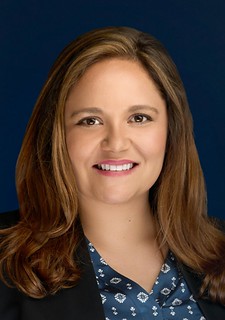Truth in advertising: NALC webinar to discuss alternative enforcement methods
“Understanding the NAD process is beneficial to food and ag companies when determining whether — and how — they want to address false or misleading advertising claims.” — Kim Bousquet
By Tru Joi Curtis
National Agricultural Law Center
U of A System Division of Agriculture
August 2, 2023
Fast facts
- Aug. 16 NALC webinar highlights corporate use of National Advertising Division
- Webinar examines NAD’s components, offers an overview of federal food requirements
- Kim Bousquet and Alli Condra of Davis Wright Tremaine LLP are presenting
- Registration is online.
(629 words)
Download related photos of Bousquet, Condra
FAYETTEVILLE, Ark. — Claims about misleading food advertising are typically made to
federal agencies, the courts, or the manufacturer, but there is another avenue – BBB National Programs' National Advertising Division, a nonprofit organization that provides information and ratings on businesses and
charities.

In the United States, the Food and Drug Administration and the United States Department
of Agriculture have primary responsibility for regulating packaging and point-of-purchase
advertising for food sold in retail establishments. Food labeling laws and regulations
also cover the claims made through product marketing. If false or misleading claims
are made, complaints may be made to entities within the government or to organizations
that provide self-policing for food and agriculture companies.
“Companies can use the National Advertising Division process by filing challenges
to advertisements on NAD’s online portal and paying the fee,” Counsel Kim Bousquet
of Davis Wright Tremaine LLP. “NAD offers a fast-track option for single, well-defined issues, a standard track
option for typical challenges, and a complex track for challenges that require complex
claim substantiation.”
The Better Business Bureau says NAD is an industry-led system designed to build consumer
trust in advertising and support fair competition in the marketplace.
According to Bousquet, NAD provides companies with an alternative means of challenging
false and misleading advertising statements made by competitors. Food and agriculture
companies regularly use NAD’s process for challenges.
“NAD is an important industry-led complaint process for truth-in advertising claims,”
Bousquet said. “Understanding the NAD process is beneficial to food and ag companies
when determining whether — and how — they want to address false or misleading advertising
claims.”
Generally, the process involves NAD’s consideration of the challenger’s materials
and those provided by the advertiser, meetings with the parties, and issuing a decision.
No matter which track a company chooses, NAD decisions are often much faster than
challenging a decision in court or raising an issue with an agency, said Bousquet.
“While it’s true that NAD’s decisions are not binding, NAD challenges often lead to
the advertiser making modifications or discontinuing advertisements,” Bousquet said.
“And, if the advertiser refuses to participate or modify an advertisement, NAD is
likely to refer the case for further investigation by the relevant government agency,
often the Federal Trade Commission or FDA. In addition, NAD case decision summaries
are made public, which can also incentivize companies to modify advertisements.”

Bousquet and Alli Condra, an associate at Davis Wright Tremaine LLP, will be discussing
several high-profile examples of how food and agriculture companies use NAD, as well
as various components of the organization. They’ll place this in context through an
overview of federal food requirements during the NALC’s upcoming webinar, “How Food
and Ag Companies Can (and Do) Use the National Advertising Division to Combat Unfair
Competition and Test the Waters of Emerging Issues.” The webinar will be held on Wednesday,
Aug. 16, at 11 a.m. Central/noon Eastern.
“Understanding NAD and the role the organization plays in ensuring truth in advertising
helps to provide consumer confidence in products and create a fair marketplace,” Bousquet
said. “Alli and I look forward to sharing our knowledge and this important information
in the webinar.”
The webinar is free of charge and registration is online.
“We’re looking forward to this webinar and all of the beneficial information that
Kim and Alli will provide,” NALC Director Harrison Pittman said. “Federal food labeling
laws are incredibly complex, and learning more about potential mechanisms that ensure
truth in labeling will be beneficial to consumers and companies alike.”
For information about the National Agricultural Law Center, visit nationalaglawcenter.org or follow @Nataglaw on Twitter. The National Agricultural Law Center is also on Facebook and LinkedIn.
For updates on agricultural law and policy developments, subscribe free of charge
to The Feed, the NALC’s twice-monthly newsletter highlighting recent legal developments facing
agriculture.
About the National Agricultural Law Center
The National Agricultural Law Center serves as the nation’s leading source of agricultural
and food law research and information. The NALC works with producers, state and federal
policymakers, Congressional staffers, attorneys, land grant universities, and many
others to provide objective, nonpartisan agricultural and food law research and information
to the nation’s agricultural community.
The NALC is a unit of the University of Arkansas System Division of Agriculture and
works in close partnership with the USDA Agricultural Research Service, National Agricultural
Library.
About the Division of Agriculture
The University of Arkansas System Division of Agriculture’s mission is to strengthen
agriculture, communities, and families by connecting trusted research to the adoption
of best practices. The Division of Agriculture conducts research and extension work
within the nation’s historic land grant education system through the Agricultural
Experiment Station and the Cooperative Extension Service.
The Division of Agriculture is one of 20 entities within the University of Arkansas
System. It has offices in all 75 counties in Arkansas and faculty on five system campuses.
The University of Arkansas System Division of Agriculture is an equal opportunity
institution. If you require a reasonable accommodation to participate or need materials
in another format, please contact dviguet@uark.edu as soon as possible. Dial 711 for
Arkansas Relay.
# # #
Media contact:
Drew Viguet
Communications & Special Projects Coordinator
National Agricultural Law Center
dviguet@uark.edu